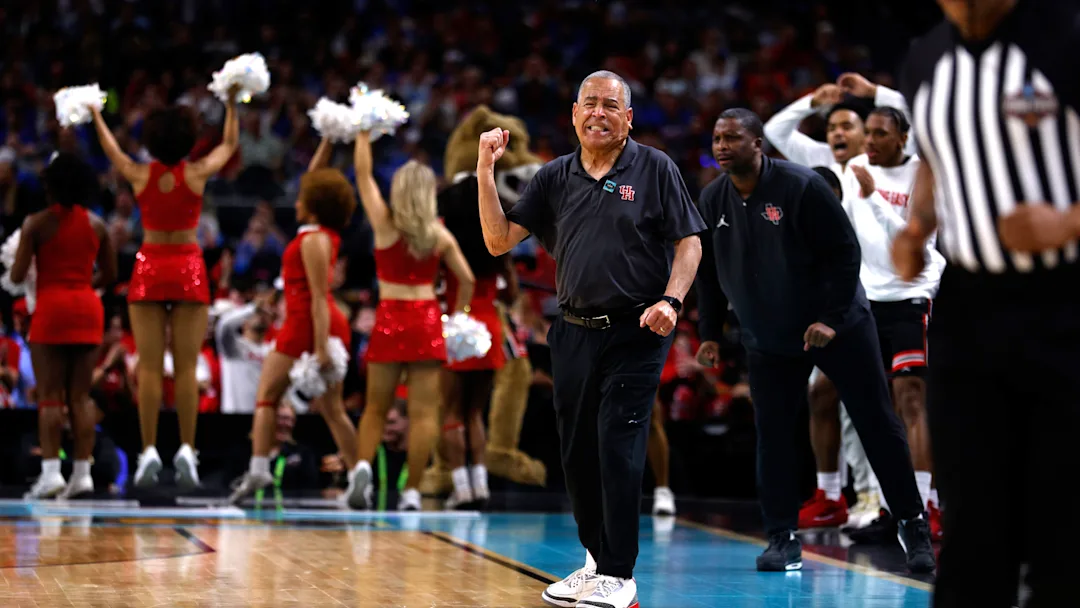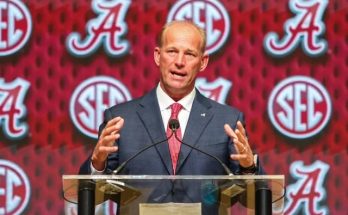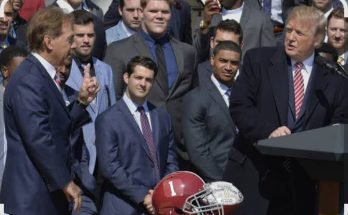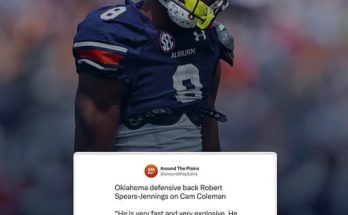When the final buzzer sounded and Houston emerged victorious over Duke in a tightly contested NCAA Tournament showdown, the celebration on the Cougars’ sideline was expected. What wasn’t expected was the fiery postgame commentary from head coach Kelvin Sampson, who used the national stage to deliver a pointed critique of the Atlantic Coast Conference, questioning the league’s physicality, reputation, and readiness for elite postseason play. For a program that has built its brand on grit and toughness, Houston’s win was not just a statement on the court—it became a platform for their coach to take direct aim at what he sees as a flawed narrative surrounding ACC basketball.
Sampson, never one to mince words, was visibly energized in the aftermath of the win. As reporters gathered around him, anticipating praise for his team or analysis of the game plan, the 68-year-old veteran coach pivoted into a blistering commentary that took much of the media by surprise. “Everybody keeps hyping up the ACC like they’re some kind of war zone,” Sampson said. “But when you step on the court with real, grown-man basketball, it’s a different story. This isn’t finesse-ball. This is March. This is toughness.”
The comments immediately reverberated across the college basketball world. Coming just moments after Houston’s stifling defense and relentless rebounding effort stymied a talented Duke squad, Sampson’s critique carried more than just the sting of a sound bite—it was backed up by results. Duke struggled to find rhythm all night, unable to overcome Houston’s trademark defensive pressure and physical dominance in the paint. The Blue Devils, a program that prides itself on offensive efficiency and skill development, looked flustered for long stretches of the game. Houston turned the contest into a slugfest, and Duke had no answer.
Sampson’s critique of the ACC didn’t come out of nowhere. All season long, pundits had debated the strength of the conference. While ACC teams like North Carolina, Duke, and Virginia have historically been fixtures in the Final Four conversation, recent years have seen a dip in the league’s top-to-bottom consistency. Critics have questioned whether the conference still holds the same weight it once did, especially in comparison to the grueling gauntlet of the Big 12, which Houston joined this season. For Sampson, who spent years competing in the Pac-12 and Big 12 before bringing Houston back to prominence, the disparity was clear.
“Playing in the Big 12, every night is a war,” Sampson said. “There are no nights off. You go into places like Lawrence, Waco, Manhattan, and if you’re not ready to fight, you get exposed. I respect what the ACC has done historically, but right now? It’s not the same. Our guys don’t flinch when it gets physical. We’ve been in the fire. And we brought that fire tonight.”
That fire showed in the box score. Houston outrebounded Duke by double digits, dominated second-chance points, and held the Blue Devils to one of their lowest shooting percentages of the season. It wasn’t just a win—it was a dismantling. Houston dictated the terms of engagement, and Duke, despite its pedigree and talent, couldn’t keep up with the Cougars’ brand of basketball. Every loose ball seemed to end up in a Houston jersey’s hands. Every contested shot came with a body blow. The Cougars played like a team that had been forged in steel; Duke looked like it had walked into an ambush.
The matchup had been circled on the calendar by many fans and analysts when the bracket was released. It pitted two of the most prominent programs in college basketball against each other—one, a historical blue blood with five national titles and decades of dominance; the other, a rising powerhouse that has become synonymous with toughness, defense, and player development under Sampson’s watch. And while Duke entered with its usual mix of five-star freshmen and seasoned veterans, it was Houston that brought the intensity.
Following the game, Duke players and coaches were largely reserved in their comments. Head coach Jon Scheyer gave credit to Houston’s physicality and discipline but avoided any controversy. “They’re a tough team. We knew that coming in,” Scheyer said. “We didn’t execute the way we needed to, and that’s on us. We’ll learn from it.” Duke’s players echoed similar sentiments, praising Houston’s effort and lamenting their own inability to adjust.
But Sampson’s remarks lit a fuse. Within hours, social media was ablaze with reactions from fans, players, and pundits alike. Some praised Sampson’s honesty and competitive fire, while others accused him of disrespecting one of college basketball’s most storied conferences. Former ACC players chimed in, defending the league’s toughness. Analysts debated whether Sampson had a point or was simply stoking the fire after a big win. The debate quickly turned into a referendum on conference strength, with Sampson’s postgame quotes serving as the opening salvo.
What’s undeniable is that Sampson has reshaped the national perception of Houston basketball. Under his leadership, the Cougars have gone from a mid-major program to a perennial tournament threat and now a force in a power conference. Their identity is clear: they are physical, they are relentless, and they don’t back down. The win over Duke was just the latest chapter in that story—but it may be the most symbolic. Taking down a titan like Duke and following it with such a bold declaration was more than just brash talk. It was a shot across the bow to the rest of the college basketball world.
“We don’t get caught up in names,” Sampson said. “We don’t care what the jersey says. We prepare the same way, we play the same way. People can say what they want about us, but our guys show up. They compete. And tonight, we were the better team.”
As Houston moves forward in the tournament, they do so with momentum—and a chip on their shoulder. Sampson’s remarks weren’t just directed at the ACC; they were a reminder that Houston sees itself as more than just a contender. They see themselves as enforcers, as challengers to the status quo. And for a sport that thrives on narrative and emotion, Sampson’s fire has added a new layer to this year’s tournament storyline.
For Duke, the loss marked another disappointing March exit, continuing a trend under second-year coach Jon Scheyer that has left fans questioning how quickly the Blue Devils can return to the dominance of the Mike Krzyzewski era. Scheyer’s teams have shown flashes of brilliance, but in games like this—games where the other team throws the first punch and never stops swinging—Duke has struggled to respond. The pressure will only mount as Houston advances and Duke heads home.
The ACC, meanwhile, has some soul-searching to do. While individual teams have shown potential, the conference as a whole has struggled to produce deep tournament runs in recent years. Sampson’s comments, while harsh, may reflect a growing sentiment that the league’s national reputation has outpaced its actual performance. Whether that criticism is fair or overblown is up for debate—but it’s now part of the broader conversation.
As for Sampson, he isn’t likely to walk his comments back. He’s built his career on authenticity, on demanding accountability from his players and from the system around him. In a sport often dominated by polished quotes and media training, his unfiltered passion stands out. Whether you agree with him or not, there’s no denying that his words—and his team’s performance—have made an impact.
And in March, when the lights are brightest and legacies are written, that’s exactly what great coaches do.



